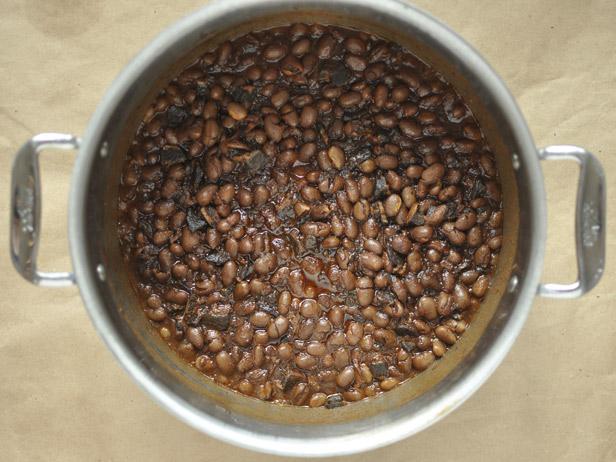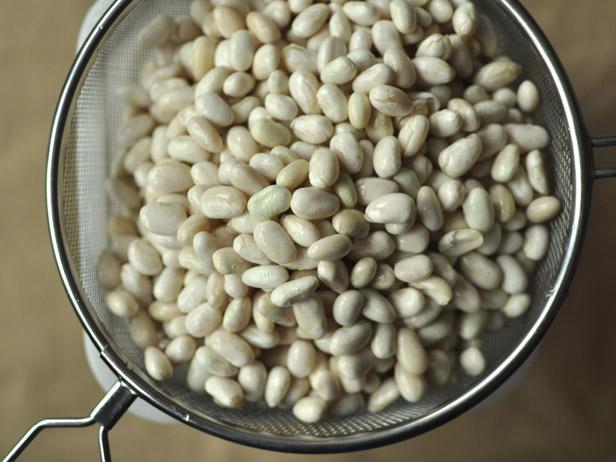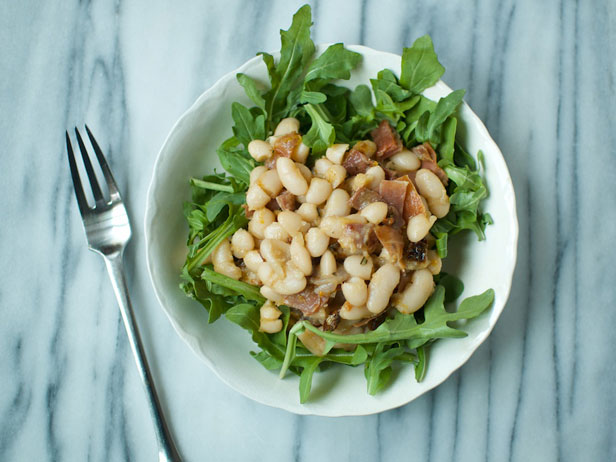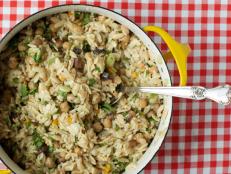The Once and Future Beans — The Weekender

So often, when I think back to the food of my childhood, all I remember is the seriously healthy stuff. Dark brown whole-wheat bread, carob chips and apple slices dominate my memories of what we ate during those years. However, a recent conversation with my sister brought up a whole other set of food memories.
She remembers the toasted cheese on white sourdough, fruit snacks in our lunches and the fact that just about every Saturday, we ate hot dogs and baked beans for lunch. I don’t know if our parents relaxed their food standards when my sister came along or if my memory is deeply selective. I do know that once prompted, I vividly recalled that baked beans were one of our pantry staples.
Part of the reason my mom was so willing to keep baked beans in the pantry and hot dogs in the freezer was that they were things we could easily help prepare. Opening the beans taught can opener dexterity and the frozen hot dogs could easily be wrapped in a paper towel and microwaved until warmed through. Plus, I’m sure she figured it was a meal that offered plenty of protein for our growing bodies (my mother is a big believer in the power of protein).
With this memory fresh in my mind and Memorial Day looming, it seemed the perfect time to try my hand at a batch of from-scratch baked beans. As is so often the case, a little digging led to a recipe from culinary mastermind Alton Brown. His recipe for The Once and Future Beans helped me nail it on the first try. The active work is fairly minimal, but the beans do need a solid eight hours in the oven, which makes them perfect for a lazy weekend supper and a definite candidate for The Weekender.

- Alton’s recipe calls for dried great Northern beans. If you struggle to find that particular variety, know that you can sub in navy or cannellini beans.
- Make sure to soak the beans in cold, fresh water for at least six hours before you plan on using them.
- Because the beans cook low and slow for at least eight hours (I actually let mine go for 10), consider cooking them overnight. If you go this route, you’ll wake up to a fragrant house.
- Know that these aren't the super-sweet baked beans of our youth. They’re delicious with a sweet edge, but they stay firmly on the savory side of things. Should you need a sweeter bean, add a bit more brown sugar.
Marisa McClellan is a food writer and canning teacher who lives in Center City Philadelphia. Find more of her food (all cooked up in her 80-square-foot kitchen) at her blog, Food in Jars. Her first cookbook, called Food in Jars: Canning in Small Batches Year Round, is now available.





























